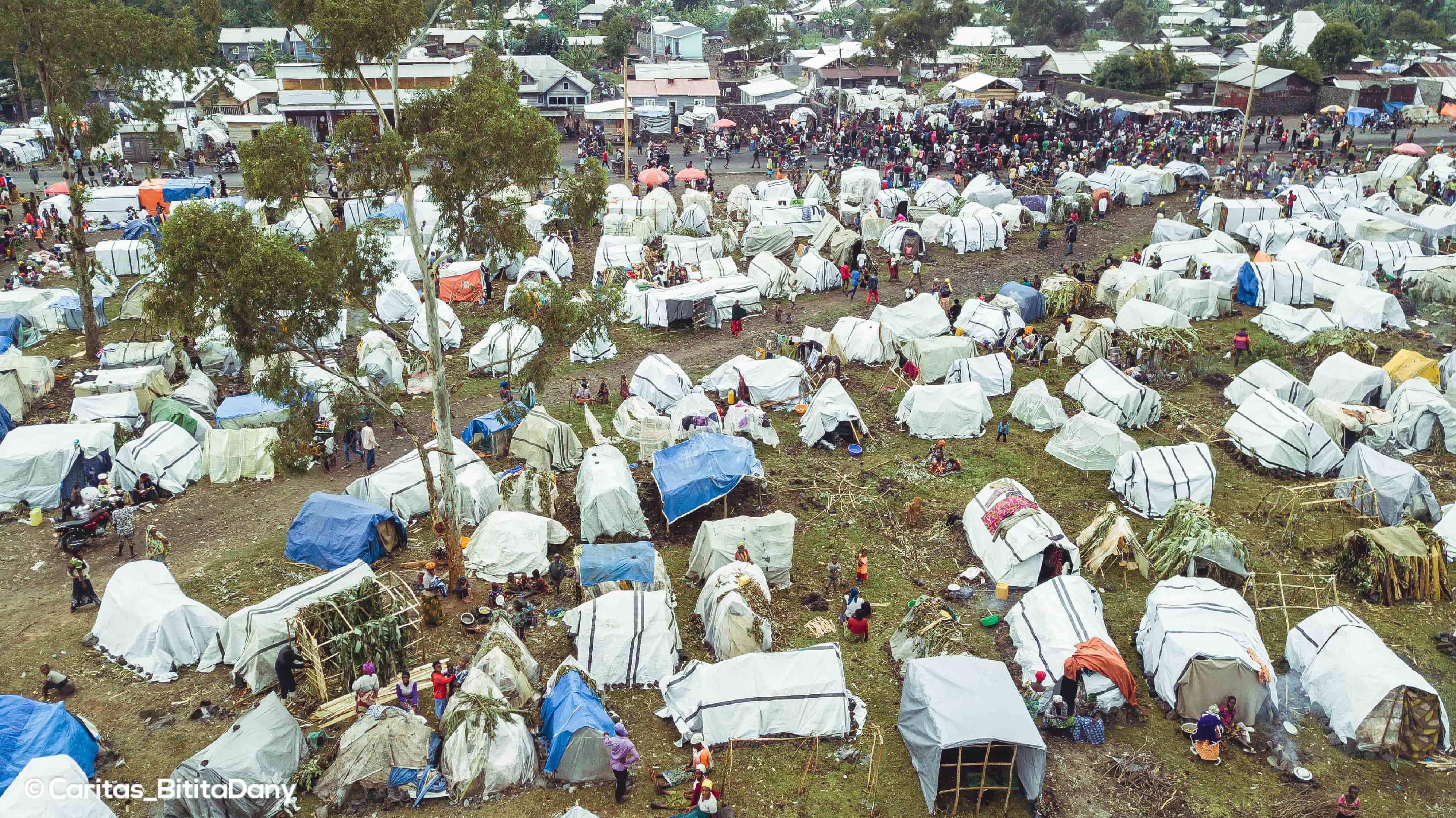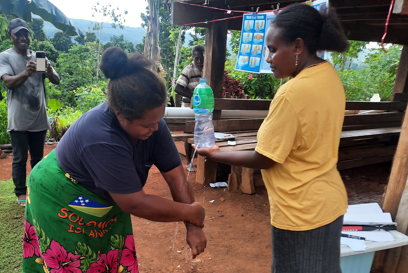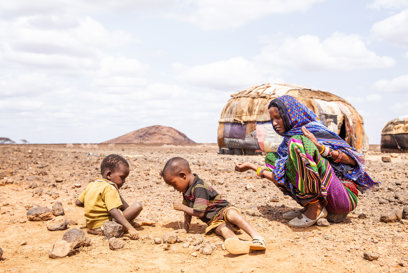
Woman in IDP camp in Democratic Republic of Congo. Photo Bitita Dany/Caritas Goma.
Caritas agencies are responding to support communities in the Democratic Republic of Congo, who have been facing escalating conflict and displacement since the rebel militia group M23 seized a swath of the east of the country just over a year ago.
Village communities have faced ongoing attacks from armed groups in North Kivu, a region bordering with Uganda and Rwanda. Since October 20, the conflict has escalated despite pledges for a ceasefire. It is believed that over 300 people were killed in an attack on a village in eastern North Kivu province in early December.
The near-constant fighting has forced a staggering 188,000 people from their homes. Nearly nine in ten people are currently staying in overcrowded shelters and improvised sites, many even sleeping outside.

IDP camp near Goma in DRC. Photo: Caritas Goma.
“Huge numbers of children have lost their parents to conflict or illness and are now extremely vulnerable with almost no support. They don’t know where and how to access services and are really struggling with basic needs. In one of the camps, people are now hosting children who’ve lost their parents, which also creates a lot of protection issues," said Lulu Mitshabu, Caritas Australia’s Program Coordinator for Democratic Republic of Congo.
Nearly 18,000 households have found refuge in Kanyarucinya, north of the city of Goma. Between 80,000 and 100,000 people, mostly women and children, are staying in Kanyarucinya with limited access to humanitarian aid. Caritas agencies and the WFP have distributed emergency food rations to 14,000 households in the camp, but people still do not have access to hygiene, clean drinking water, sleeping supplies, protection for children and education.
“Without immediate intervention many people will be pushed further into poverty, and women, children and people with disability are left without support. People urgently need emergency shelter, sleeping supplies, clean water and food,” said Lulu Mitshabu.
Caritas Australia's partner CAFOD and the Anglican Church are on the ground responding to support communities who require immediate assistance and assessing the most urgent needs. Your generous support can help provide emergency relief to help families recover and rebuild from disaster.
Your support today can help communities affected by emergencies in Africa, such as the Democratic Republic of Congo crisis.

















